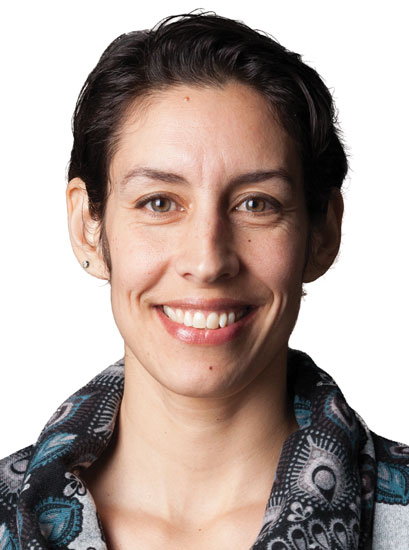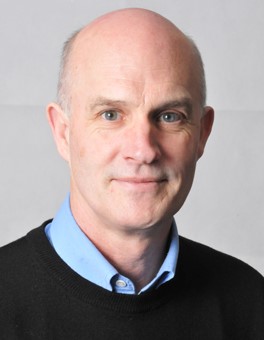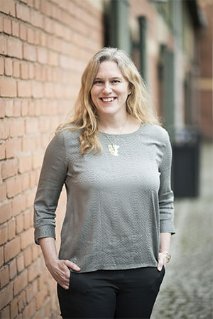The Blue Food Assessment (BFA) presents an unprecedented review of the aquatic foods sector and has uncovered how fisheries and aquaculture can play a greater role in delivering healthy diets and more sustainable, equitable and resilient food systems around the world. This international joint initiative brought together over 100 scientists from more than 25 institutions, led by the Stockholm Resilience Centre at Stockholm University, the Center for Ocean Solutions and the Center on Food Security and the Environment at Stanford University, and EAT.
The event will start with a presentation introducing the Blue Food Assessment by Dr Beatrice Crona, Deputy Science Director and Associate Professor, Stockholm Resilience Centre, followed by a discussion of the topic by a panel including Jasper Scholten, Neil Stephens, Ronnie Tan, and Professor Jimmy Turnbull. The seminar will be hosted by Dr David Little (Institute of Aquaculture, University of Stirling) and concluded by Dr Line Gordon (Stockholm Resilience Centre).
Co-host and presenter Beatrice Crona

Beatrice Crona
Associate professor, Deputy science director, Stockholm Resilience Centre, Stockholm University
Beatrice has a joint major in Biology and Geology (BioGeo) from Stockholm University. She holds a MSc in Marine Ecotoxicology, and a PhD in Systems Ecology from Stockholm University, which focused on mangrove ecology and marine governance. Beatrice’s work centers on various aspects of oceans and fisheries governance, as well as understanding different emerging global connectivities and their effects on social-ecological outcomes at multiple scales.
Beatrice currently co-chairs The Blue Food Assessment, an international initiative aimed at providing a comprehensive scientific evaluation of the sustainability, nutrition, equity, and justice dimensions of aquatic foods cultured and captured in freshwater and marine environments within the global food system. Crona has been involved in developing the SRC-EAT research agenda and continues to be involved in the SRC-EAT research and outreach related activities. She is part of the EAT-Lancet commission on Healthy Diets from Sustainable Food Systems (2016-2017).
She was a member of the SRC Strategic Advisory Council from 2011-2014, and has been part of educational initiatives directed at dignitaries, such as the Swedish Crown Princess.
She has led hackathons in collaboration with the fishing industry, and has helped improve reporting guidelines for fisheries improvement projects in collaboration with Sustainable Fisheries Partnership. She is also a long-time Subject Editor for the academic journal, Ecology and Society.
Panelists – Nanna Roos, Jasper Scholten, Neil Stephens, Ronnie Tan, and Professor Jimmy Turnbull

Nanna Roos
Associate Professor, Project co-ordinator, Paediatric and International Nutrition, University of Copenhagen
Nanna Roos is Associate Professor in international nutrition at the Department of Nutrition, Exercise and Sports, University of Copenhagen. She has conducting research related to food systems, nutrition and health in low-income countries for the past 20 years. She documented the role of indigenous fish species as a source of important micronutrients in diets in rural Bangladesh, and contributed to the development of fishpond production integrating small indigenous nutrient dense fish species with cultured species. Her research related to seafood has also focused on the role of fish and other animal-source foods on prevention and treatment of chronic and acute malnutrition in children.

Jasper Scholten
Principal Consultant at Blonk
Jasper Scholten (MSc) is Principal Consultant at Blonk. He has over 12 years of experience in consultancy and research with regards to environmental and sustainability issues of food production systems. He graduated in Animal Sciences and Animal Production Systems from Wageningen University and Research in the Netherlands. At Blonk Jasper manages the consulting department, which includes LCA studies, development of LCI databases, (ISO critical) LCA reviews and LCA standard development, such as Production Environmental Footprint (PEF).

Neil Stephens
Senior Lecturer in Technology and Society, University of Birmingham
Neil is a sociologist and Science and Technology Studies scholar. A key focus has been innovation in biotechnology, and he has conducted research about the politics of stem cell science, mitochondrial donation, and cultured meat, among others.
Neil has conducted a diversity of public and policy engagement activities. This includes multiple appearances in newspapers and broadcasts across the world, as well as speaking at events such as the Edinburgh Book Festival and New Scientist Live.
He has an interest in qualitative methods, having published multiple papers on this topic, and is an editorial board member for the journal Qualitative Research.

Ronnie Tan
Regional Aquaculture Consultant, US Grains Council
Ronnie currently serves on the advisory board of Calysta, USA, as the regional aquaculture consultant with the US Grains Council and advisor to BASF, Germany. He also acts as a mentor at Hatch – an aquaculture startup accelerator. Ronnie recently stepped down as Vice-President at Blue Archipelago – the largest integrated shrimp enterprise in Malaysia, responsible for downstream operations including sales & marketing, branding and corporate strategy. He was Executive Director and board member at Regal Springs Group – the largest tilapia integrator in the world, responsible for global feed supply and held a supervisory role of the Indonesia legal entity. He co-led the sale of the company. He started his career building the aquaculture feed division in the Gold Coin Group – a major feed company in Asia.
An aquaculturist by training, he has over 35 years’ experience in international marketing, supply chain and general management in multinational chemical and feed companies such as Rhone Poulenc and Imperial Chemical Industries. In addition to aquaculture and feed, he has working knowledge of the oleochemical and zero calorie natural sweetener industries. He was a board member of the Malaysian Palm Oil Board and ICI’s representative to RSPO (Roundtable on Sustainable Palm Oil).
Ronnie, who is Malaysian, read Environmental Biology at King’s College, University of London and obtained his MSc. in Aquaculture from University of Stirling.

Jimmy Turnbull
Professor, Institute of Aquaculture, University of Stirling
Jimmy Turnbull is a Professor at the Institute of Aquaculture, University of Stirling. He qualified as a vet from Edinburgh Royal (Dick) Veterinary College 1980 and worked for 6 years in mixed/large animal practice before moving to specialise in aquaculture. He completed an MSc in Aquatic Veterinary Studies and a PhD in salmon health management. He has worked as a health advisor to Scottish fish farms and spent nearly 10 years working as a consultant on behalf of the Institute of Aquaculture mostly in Asian aquaculture. His research is related to understanding determinants of health and welfare in farmed aquatic populations and translating that understanding into improved farming practices. He has had roles as Deputy Director of the Institute of Aquaculture at Stirling, President of the Fish Vet Society, Research Theme leader for the MASTS Productive Seas and has acted on a variety of working groups and panels, including FAWC, MGSA, RSPCA Freedom Food, BBSRC, NRC.
Concluding remarks – Line Gordon

Line Gordon
Director, Curt Bergfors Professor in Sustainability Science, Stockholm Resilience Centre, Stockholm University
Line has a PhD in Natural Resources Management from Department of Systems Ecology at Stockholm University, and carried out post-doctoral research at the International Water Management Institute in Sri Lanka. Line’s research integrates insights from resilience thinking, land use change, food systems, hydrology, and social-ecological systems. She is the director of the Stockholm Resilience Centre.
Line is on the board of directors of the EAT Foundation, a science-based global platform for food system transformation. One of her key interests in terms of food system change is related to aspirational change, especially in the Nordic region. She was also one of the authors of the EAT-Lancet Commission, and on its Executive Editorial Team.
Line has published more than 50 research articles, including articles in PNAS and Trends in Ecology and the Environment. She also co-authored the book Water Resilience for Human Prosperity (2014) and has contributed to several other book chapters.
Supporting live audience questions – Co-authors of the Blue Food Assessment articles; Simon Bush, Fabrice DeClerck, Alexander Kaminski, Richard Newton and Rebecca Short

Simon Bush
Chair of Environmental Policy at Wageningen University
Simon holds the Chair of Environmental Policy at Wageningen University in the Netherlands. He has published on public and private governance arrangements for sustainable seafood over the last 15 years. His recently published book, entitled ‘Governing Sustainable Seafood’, explores how market-based arrangements such as certification, FIPs, fishery credit systems and traceability can expand their impact by rethinking their social objectives in driving sustainability.

Fabrice DeClerk
Science Director, EAT
Fabrice DeClerck PhD is the Science Director of EAT and a Senior Scientist with the Alliance of Bioversity and CIAT of the CGIAR. For the past twenty years he has led research at the interface of environment, agriculture and human health – notably contributing to the EAT-Lancet Commission on healthy diets from sustainable food systems. He has had the privilege of working with a diversity of food system actors from across the globe, notably small farmers and farming communities in Africa, Latin America and Asia. His current projects and collaborations include the Blue Food Assessment where he contributed to the drafting of the Policy report of the assessment. He is also engaged in IPBES Assessments, and the Earth Commission. Fabrice feels strongly that food, from production to consumption, is a major solution space for both people and planet.

Alexander Kaminski
PhD Researcher, Institute of Aquaculture, University of Stirling
Alexander Kaminski is a South African sociologist plying his trade in the world of aquatic food systems. He spent some time working with WorldFish in Malaysia, Bangladesh and Zambia, on issues related to the social and ecological wellbeing of small-scale fisheries and artisanal pond farming systems. Alexander, a Commonwealth Scholar, is currently doing his PhD with Prof. Dave Little at the Institute of Aquaculture at the University of Stirling, where he is exploring nutrition-sensitive approaches to aquaculture development in sub-Saharan Africa. His latest publication, led by Rebecca Short and colleagues, as part of the Blue Foods Assessment, deals with recognising the enormous diversity of small-scale actors in aquatic food systems in an effort to establish more inclusive, equitable and sustainable approaches to managing these important systems.

Richard Newton
Research Fellow, Institute of Aquaculture, University of Stirling
Richard Newton is a research fellow in the Institute of Aquaculture at the University of Stirling. He has worked in the industry for 20years in academic and commercial roles but now works on promoting circular economy initiatives in aquaculture value chains, linking environmental and socio-economic gains through comprehensive sustainability assessments. His main focus is to improve the resource efficiency of aquaculture production through various means to “eco-intensify” food production. He has worked across Europe and Asia’s main centres of aquaculture production investigating many of the species that underpin food security and contribute to rural economies

Rebecca Short
Post-doctoral Researcher, Stockholm Resilience Centre, Stockholm University
Dr. Rebecca Short is a Postdoctoral researcher at the Stockholm Resilience Centre, Stockholm university. A background in applied marine conservation with a number of NGOs led Rebecca to begin research focused on aquatic social-ecological systems, with a PhD investigating health-environment links related to the increasing role that mosquito net fishing is playing in sub-Saharan Africa’s small-scale fisheries. Though subsequently broadening her work to look more generally at the environment and human health nexus, Rebecca remains largely focused on the role of small-scale fisheries. Since joining the Blue Food Assessment Rebecca has been one of the lead authors on the paper ‘Harnessing the diversity of small-scale actors is key to the future of aquatic food systems’, amongst others.